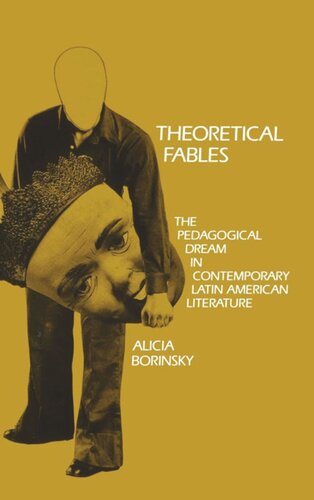

Most ebook files are in PDF format, so you can easily read them using various software such as Foxit Reader or directly on the Google Chrome browser.
Some ebook files are released by publishers in other formats such as .awz, .mobi, .epub, .fb2, etc. You may need to install specific software to read these formats on mobile/PC, such as Calibre.
Please read the tutorial at this link: https://ebookbell.com/faq
We offer FREE conversion to the popular formats you request; however, this may take some time. Therefore, right after payment, please email us, and we will try to provide the service as quickly as possible.
For some exceptional file formats or broken links (if any), please refrain from opening any disputes. Instead, email us first, and we will try to assist within a maximum of 6 hours.
EbookBell Team

4.7
96 reviewsAlicia Borinsky argues that the contemporary Latin American novel does not just ingeniously dismantle the referential claims of the more traditional novel; it offers a postmodern version of the lessons taught by fiction.
Latin American fiction, perhaps the most inventive literature of recent decades, seems marked by its self-reflexivity, by its playful relationship to history and the everyday, and by its concerns with the ways in which language works. But is it, Borinsky asks, really a literature whose primary goal is to raise metafictional questions about writing and reading? While the effects of this literature include dismantling the illusions of realism, naturalism, and historicism, the haunting and disturbing energy of its major works lies in their capacity of invoke a region beyond literature through literature.
Theoretical Fables progresses by way of close readings of the works of eight canonical—and not quite canonical—Latin American Authors. Borinsky argues that the Latin American "theoretical fable" has its origins in the work of the early twentieth-century Argentinean writer Macedonio Fernández. In this light she studies the works of Jorge Luis Borges, Gabriel Garcia Márquez, Julio Cortázar, José Donoso, Adolfo Bioy Cesares, Manuel Puig, and Maria Luisa Bombal.